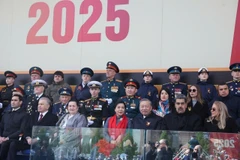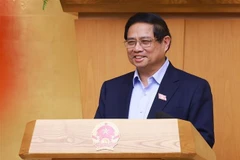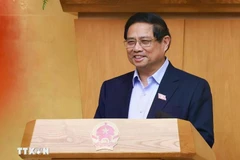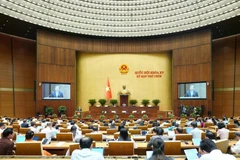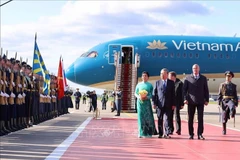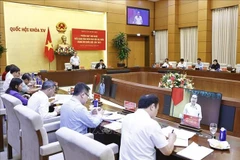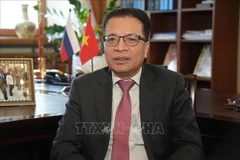Speaking at an online conference inHanoi on May 8, the Prime Minister reiterated that the Governmentconsiders poverty reduction its key task, stating the involved partiesneed to study and propose concrete measures to more effectivelyimplement Resolution 30a/2008/NQ-CP on poverty alleviation.
He agreed with localities’ proposals to increase the involvement ofyoung intellectuals and design policies to support impoverishedhouseholds or those near the poverty line within one year.
The National Steering Committee on Sustainable Poverty Reductionshould continue to review and fine-tune policies in line with theresolution, specifically removing ineffective measures while promotingand supplementing efficient policies.
The PMsuggested focusing on forest protection, supporting poor districts andethnic minority regions to develop animal livestock, and encouragingbusinesses to invest in underprivileged areas.
It is also necessary to balance financial sources and increase field inspections at the grassroots level.
The National Steering Committee pledged to speed up efforts inmountainous, ethnic minority, border, coastal and island regions from2016-2020 as well as concentrate on building infrastructure,facilitating manufacturing development and enhancing access to socialservices for residents.
According to the Ministry ofLabour, Invalid and Social Affairs, Resolution 30a/2008/NQ-CP is amajor policy of the Party and State aiming to reduce poverty indisadvantaged regions.
Over the past six years, 22.1trillion VND (1,034 million USD) was allocated from the State budget tofund the programme, including 17.1 trillion VND (799 million USD) fromthe central budget and 2 trillion VND (92.6 million USD) from the localbudget.
On average, each poor district receives 35-40 billion VND (1.64-1.87 million USD) per year.
The rate of poverty-stricken households from 2011-2014 in 64 poordistricts reduced by an average 6 percent per year (from 377,939 poorhouseholds in late 2010 to 234,743 in late 2014), higher than the 4percent target set in the resolution.
By 2020, atleast 50 percent of districts are expected to escape from poverty whilethe average per capita income will double that of 2015.-VNA




